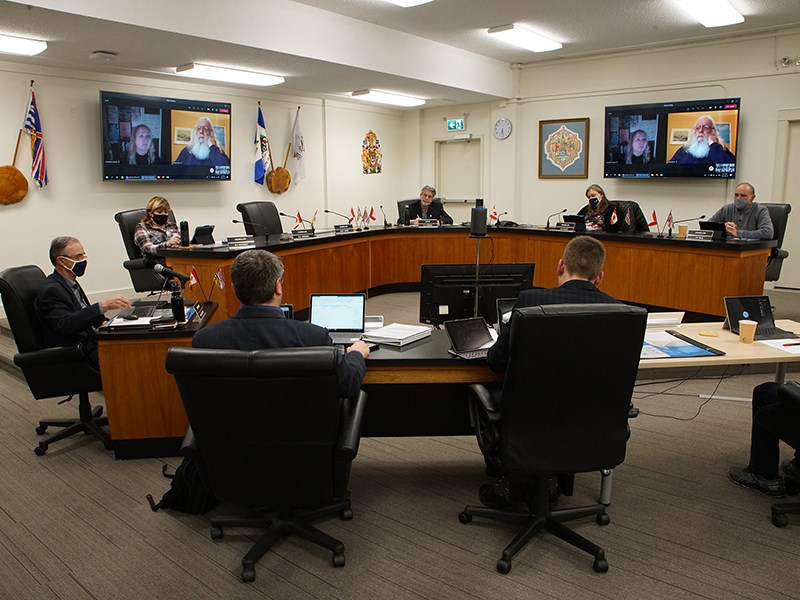City of Powell River councillors approved four resolutions to be brought up at the Association of Vancouver Island and Coastal Communities (AVICC) annual general meeting and convention.
This year’s convention will be held virtually on May 28.
At the February 18 council meeting, councillors first reviewed a resolution related to contaminants of emerging concern released from wastewater treatment plants. The resolution requested that the Province of BC and Government of Canada establish sampling protocols and introduce specific measures for monitoring and reducing levels of contaminants of emerging concern from wastewater treatment plants in order to prevent adverse impacts to human and wildlife health in air, water and land.
The second resolution is to develop a vision to end energy poverty. The resolution called for the province to set a clear vision and targets to end energy poverty in BC within the next 10 years, taking action on the three key drivers of energy poverty: low incomes, high energy costs and poor energy efficiency of homes. The resolution states that more than 270,000 households in BC experience energy poverty, struggling to afford basic energy services such as heating, lighting and cooking.
The third resolution calls for reform of the BC Utilities Commission (BCUC). The resolution recommends the province amend and modernize the Utilities Commission Act, expanding the scope of BCUC’s mandate and giving it clear direction to consider environmental, equity, resilience and reconciliation objectives in its decision making. The resolution states that the BCUC is currently governed by outdated legislation in its ability to guide the transformation of BC’s energy system and to direct utilities to realign activities in line with reducing carbon emissions through electrification of buildings and transportation and other factors.
The first three resolutions were brought to city council by councillor CaroleAnn Leishman.
The fourth resolution was brought by councillor Cindy Elliott and pertained to requirements for audited financial statements for municipally owned corporations. The resolution requests that the province legislate changes to mandate preparation of audited financial statements in articles of incorporation for municipally owned corporations and entities for which the corporations hold significant influence or control.
Elliott said it was brought to her attention that the city does not require audits on some of those types of partnerships that municipalities may have ownership in.
“It seemed a great idea at the time to change that,” said Elliott. “It greatly improves transparency and confidence of the public in municipal governments to have these audits be mandatory. Having discretion over that is very easily used to save money. It’s not a very good idea and we need to discourage saving money on audits. It’s a public confidence issue that needs to be legislated.”
Councillor Maggie Hathaway said she didn’t disagree with the motion, but audits are “hugely expensive.” She said sometimes cities have corporations that don’t do anything and have a significant cost if an audit is done. She asked Elliott if she had thought about having a review engagement, which is a much cheaper process, although not as in-depth. She said an on-the-shelf company may not require an audit.
Elliott said she did consider it, but when she had thought the matter through and talked to a lot of people involved in these types of things, the requirement for an audit, while it might be expensive, and in the opinion of the politicians maybe not necessary, it doesn’t contribute to the confidence of the public.
“When you are a government, your standards have to be different,” said Elliott. “Public confidence is not served well by that option. It’s a cost of doing business when you are a government, versus a private entity.”
Council passed all four resolutions unanimously.



